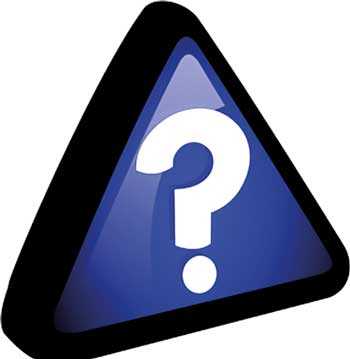Wednesday Feb 18, 2026
Wednesday Feb 18, 2026
Sunday, 1 March 2020 00:00 - - {{hitsCtrl.values.hits}}
By Jack Dunigan
Businesses and organisations tend to generate lots of paper and digital directives. Over time (usually a very short amount of time) they put in place standards, processes, systems, methods, and forms…lots and lots of forms to be filled out and handed to someone at some time who does something with them (although most of us are not sure what). 
We develop habits and routine which do indeed have their place. But organisations are not like machines in that they should run perpetually without being questioned.
And that question is “why?”
Why do we do this the way we do it?
Why is this directive in place?
Why do we need this number?
Why is this requirement on this checklist?
The driver’s license bureau in the US Virgin Islands (where I lived just before moving to my present location) required citizens to bring two passport photos with their application for a driver’s license long after it had installed digital cameras and printers. Even though the printed passport photos were no longer necessary, clerks were required to collect them and staple them to a paper application. When asked why, they simply replied that it was on the list. Organisations tend to maintain systems and processes, manifest attitudes and promote products long after they have lost their appeal or their effectiveness. It seems that why is asked too seldom. Without wanting to sound negative, religious organisations are really guilty of this.
You as leader need to be asking why all the time…and you need to be relentless in discovering an answer then ruthless in evaluating the answer.
“Just because” or “Because we’ve always done it that way” are not acceptable.
But there’s a flip side. When someone who works with you asks you why, you have to be able to answer it as well. And “Because I said so” is really not the first answer that should come out of your mouth. (There are times when that might indeed be the right answer but those times are very rare.)
So, why ask why?
Because it challenges motives. It delves into reasons why something is done or required.
It provokes examination of suggestions, policies, procedures, methods, and intentions. Therefore it promotes ‘both’ efficiency and effectiveness.
It prods us to look backwards into the origin of things but challenges us to push ahead. We cannot and we must not validate our positions or our authority by measuring our faithfulness to systems, forms, methodologies, processes, or procedures that we may have inherited. There might have been a good reason why back then, but is it a good reason why for tomorrow?
Why is the recommended first response to every action, every requirement, every regulation, and every expectation you as a leader are considering. It should be one of the most often used words in a leader’s vocabulary. Why? Because it forces us to trim down, to focus, to zero in on the most important, to validate every action, and free us and our associates from everything but the most critically important things to do.
It is too easy to slip into the comfort of following habits so that we do things right. Asking why makes sure we are doing the right things.